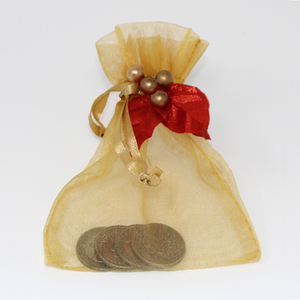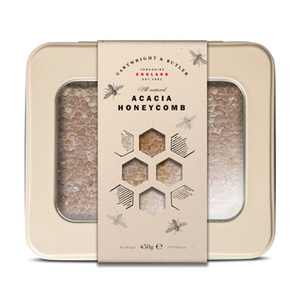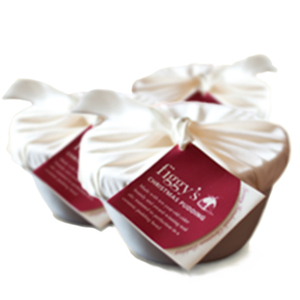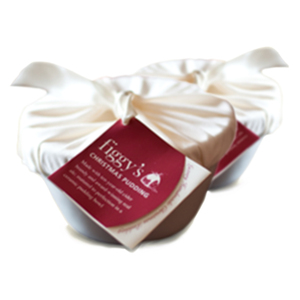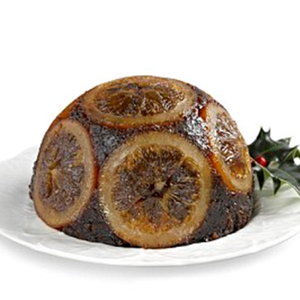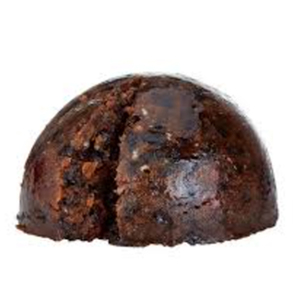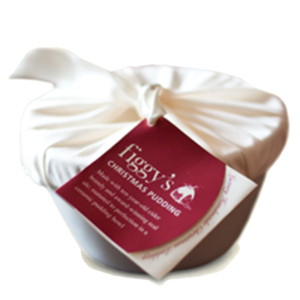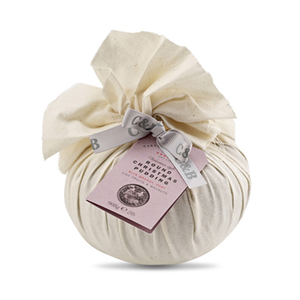
A little bit of History
History of the Christmas Pudding
Early versions of Christmas pudding were originally known as Christmas Porridge or Frumenty and appeared in the 14th century, with ingredients including beef, mutton, prunes, spices and wine rather than the modern-day fruit, nuts and suet.
In 1664, Oliver Cromwell banned the Christmas pudding. He declared “Eating it was a lewd custom inappropriate for people who followed God”.
The pudding was re-established in 1714, with meat eliminated from the recipe, by King George I and made popular by Prince Albert, husband of Queen Victoria
The Christmas pudding is cooked well in advance of Christmas and then reheated on Christmas day, it became associated with Stir Up Sunday, the informal term in Anglican churches for the last Sunday before the season of Advent and gets its name from the beginning of the collect for the day in the Book of Common Prayer,
"Stir up, we beseech thee, O Lord, the wills of thy faithful people; that they, plenteously bringing forth the fruit of good works, may of thee be plenteously rewarded; through Jesus Christ our Lord. Amen."
Or in latin
"Excita, quaesumus, Domine, tuorum fidelium voluntates: ut divini operis fructum propensius exsequentes, pietatis tuae remedia maiora percipiant: Per Christum Dominum nostrum. Amen."
The date for Stir Up Sunday is set to the Twenty-Fifth Sunday after Trinity. As the number of weeks in between varies from year to year the date will differ from one year to the next.
This year (2017) it will fall on 26 November
Christmas Pudding Traditions
13 Ingredients
Christmas pudding is traditionally made with 13 ingredients to symbolise Jesus and the 12 Apostles. The ingredients are: Sultanas, Raisins, Brown Sugar, Currants, Glace Cherries, Breadcrumbs, Brandy, Suet, Almonds, Orange, Lemon, and Mixed Spice
Stir and Make a Wish
Traditionally, families gather together in the kitchen to mix and steam the Christmas pudding Everyone takes a turn to stir the pudding mix and makes a special wish for the year ahead. As stirring the mixture is hard work, it is useful to have all the family taking part.
Stir East to West
The pudding mixture is stirred from East to West in honour of the three wise men who visited the baby Jesus. They brought with them Gold, Frankincense and Myrrh which were viewed as luxuries of the time.
Add a Silver Sixpence
In some households, silver coins are added to the pudding mix. It is believed that finding a coin brings good luck and wealth for the year ahead. Nowadays, the coins are sterilised (i.e. boiled) before being added. (If you wish to follow this tradition do not use new coins as they can be toxic.)
Lighting (Flaming) the Christmas Pudding
1.Turn out the cooked pudding onto a serving plate with a good-sized rim around the edge to catch any spirit.
2.The important thing is to get the spirit really hot. Pour 2-3 tablespoons of brandy, rum or whisky into a long-handled metal ladle and heat it over a flame until hot.
3.Light the spirit by tilting the ladle slightly over the flame so the fumes ignite, or use a match, then immediately pour it over the pudding.
4. Wait for the flames to go out before serving.
Christmas Pudding Recipe
Ingredients
- Grease proof paper (to line the bottom of the basin and cover the top)
- Foil to cover the top
- Piece of string (to tie the top)
- Silver coins traditionally old sixpences (optional) – Do not use new coins as they can be toxic!
- 75g (3 oz) suet
- 450g (1 lb) dried fruit (use a mixture of sultanas, raisins, currants, glace cherries -roughly chopped apricots or dates can be used as a substitute)
- Roughly chopped peel one lemon
- Finely grated rind and juice of 1 orange
- 50ml (2 fl oz) brandy or rum, plus extra for infusing and flaming
- 100g (4 oz) light muscovado sugar
- 2 eggs
- 1 level teaspoon ground mixed spice
- 120g (4½ oz) fresh white breadcrumbs40g (1½ oz) whole shelled almonds, roughly chopped
Method
Measure the dried fruit and place into a bowl with the orange juice. Add the brandy or rum to marinate over night or at least one hour
Sterilise the coins (if using) by boiling them in water for 10 mins.
Lightly butter a 1.4 litre (2½ pint) pudding basin. Cut a small square of grease proof paper and press into the base of the basin.
Put the butter, sugar and grated orange rind into a large bowl and cream together with a wooden spoon or hand-held electric whisk until light and fluffy.
Gradually beat in the eggs, adding a little flour if the mixture starts to curdle.
Sift together the flour and mixed spice, then fold into the creamed mixture with the breadcrumbs and the nuts.
Add the dried fruits, apple, liquid and sterilised coins (if using) and stir well. Alternatively, the coins can be added on the day by placing one in each portion before serving to save arguments!
Spoon into the pudding basin, pressing the mixture down, level the top with the back of a spoon.
Cover the pudding with a layer of greaseproof paper and foil, both pleated across the middle to allow for expansion. Tie securely with string and trim off excess paper and foil with scissors.
To steam
Put the pudding in the top of a steamer filled with simmering water, cover with a lid and steam for about eight hours, topping up the water as necessary.
Or
To boil
Put a metal jam-jar lid into the base of a large pan to act as a trivet.
Put the pudding on to this and pour in enough boiling water to come one-third of the way up the bowl.
Cover with a lid, bring the water back to the boil, then simmer for about seven hours, until the pudding is deep brown colour, top up the water as necessary.
Remove the pudding and cool completely. Make holes in the pudding with a fine skewer and pour in a little more brandy or rum to moisten.
Replace the paper and foil.
Store in a cool, dry place.
On Christmas Day, steam or boil the pudding for about an hour to reheat.
Turn the pudding on to a serving plate.
To flame, . Pour 2-3 tablespoons of brandy, rum or whisky into a long-handled metal ladle and heat it over a flame until hot. Set light the spirit by tilting the ladle slightly over the flame so the fumes ignite, or use a match, then immediately pour it over the pudding.
Christmas Food and Drink
Select Your Currency:
